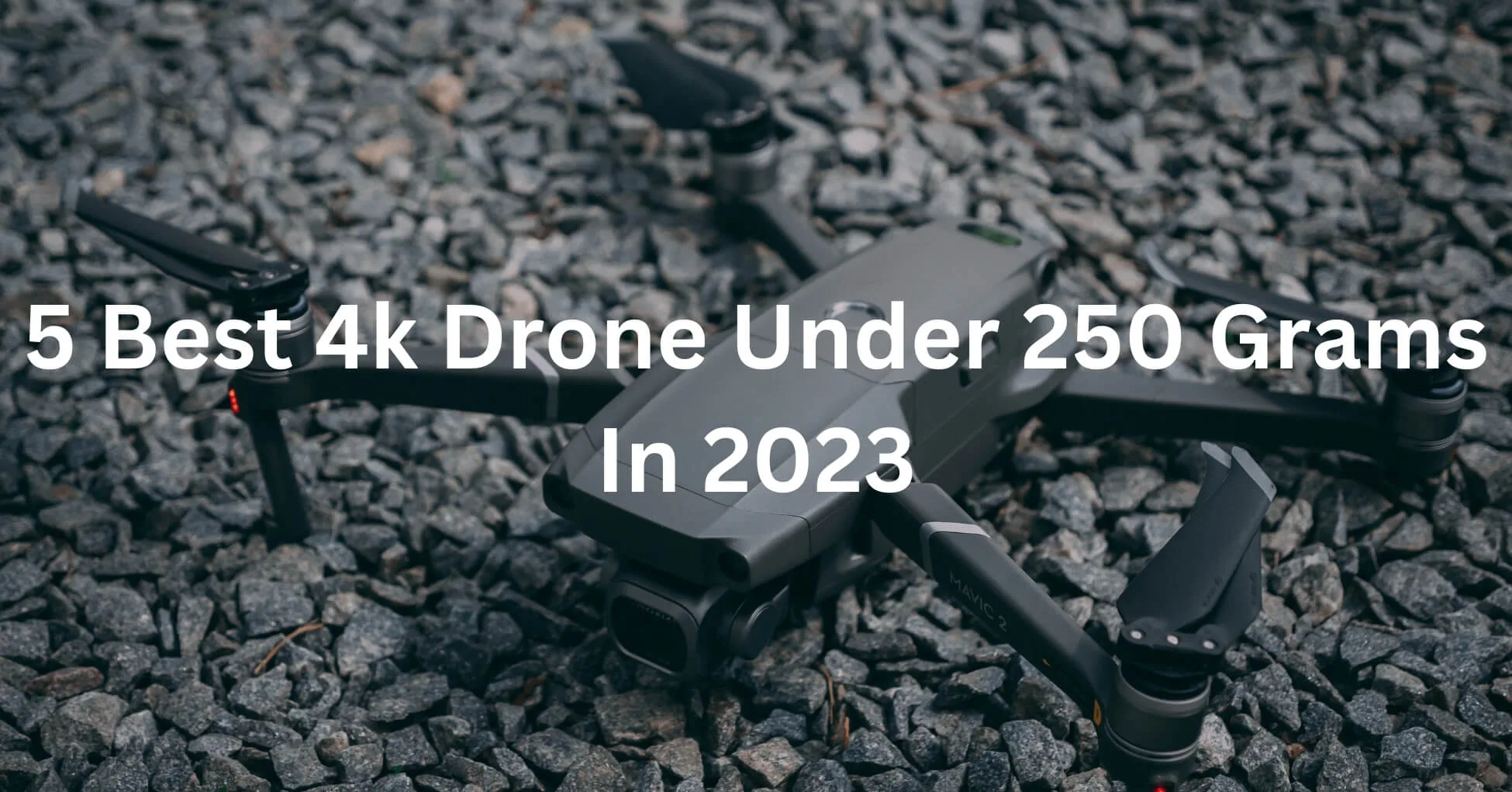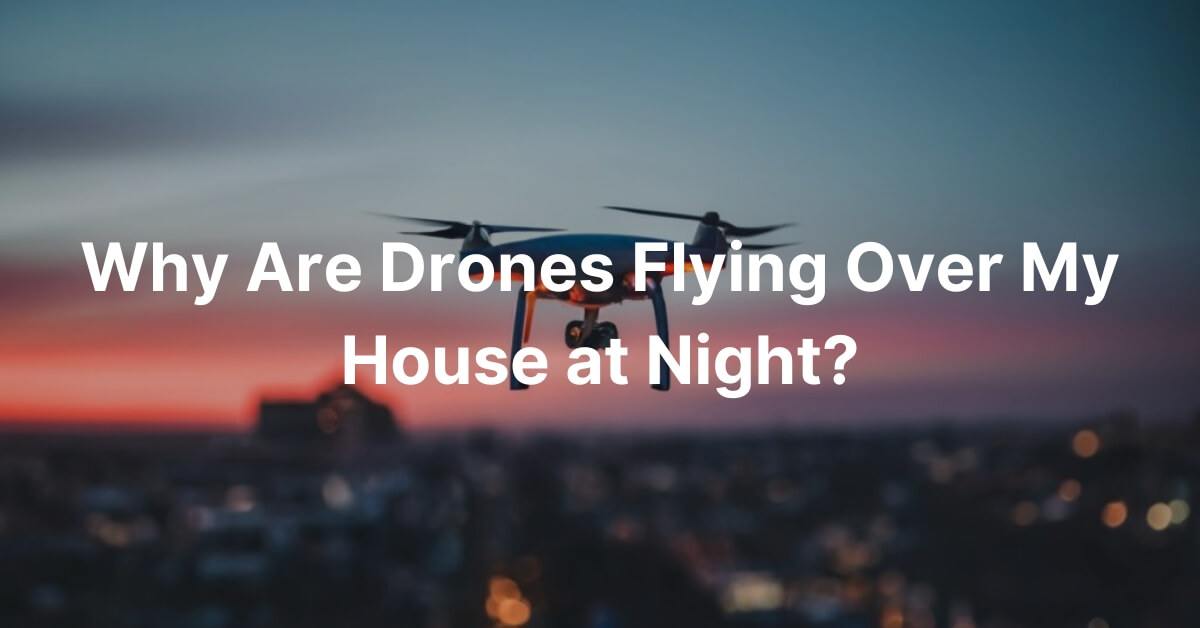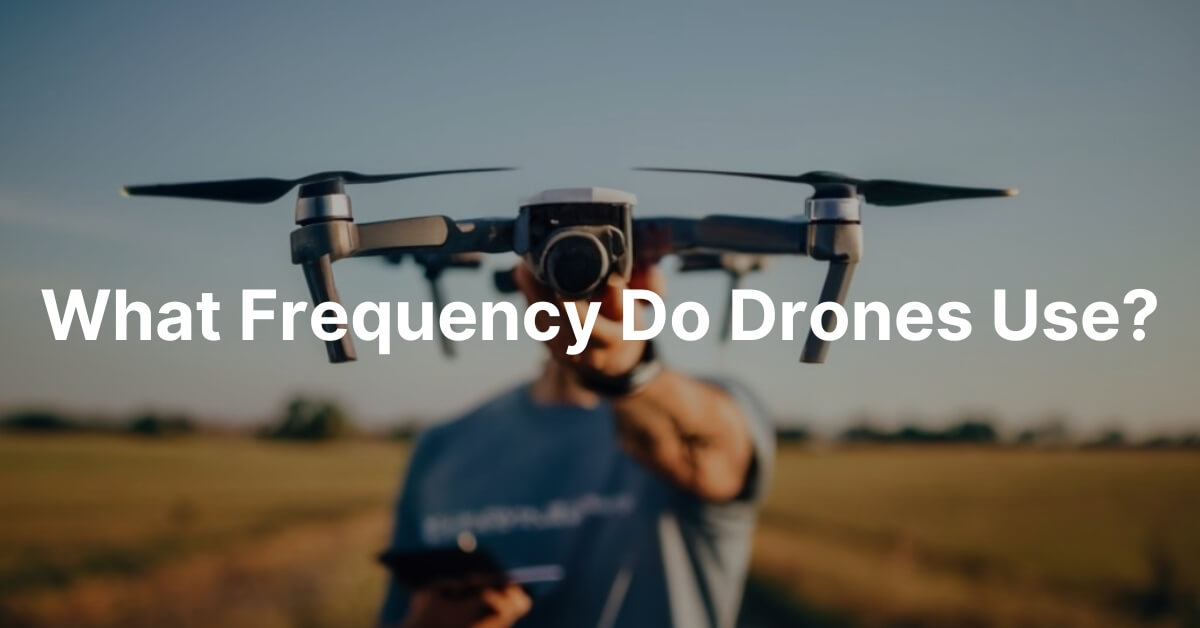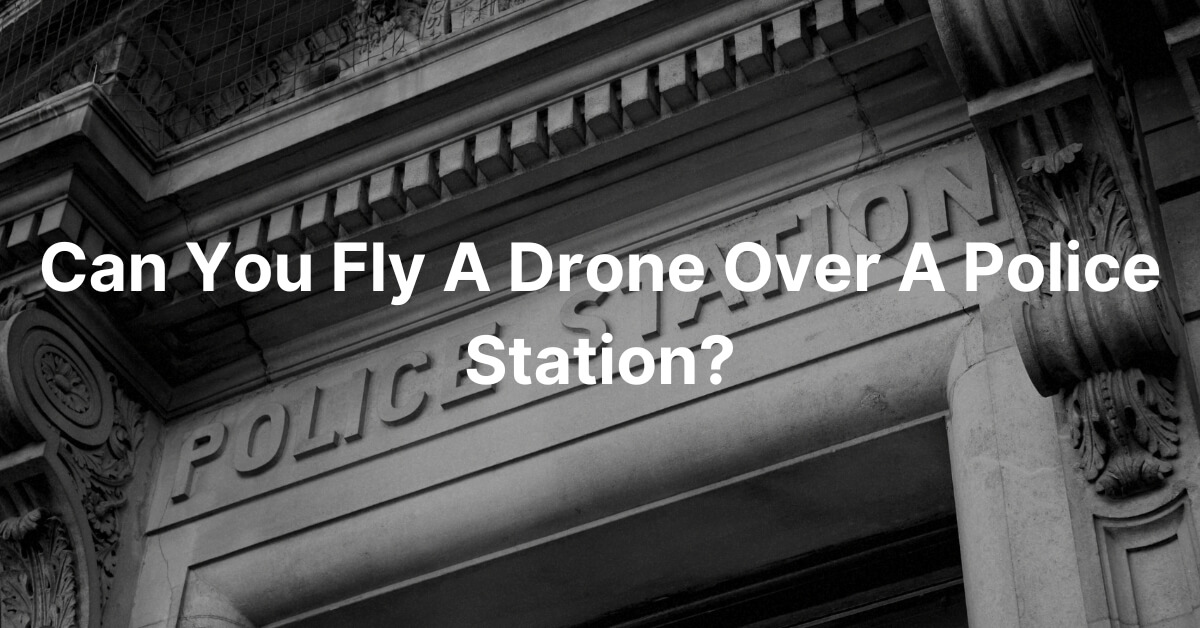

Have you ever been startled awake in the dark of night, thinking a plane was flying low over your house?
Did it make you wonder if maybe what you heard was actually a drone instead—and if so, why are drones flying over my house at night?
In this blog post, we’ll explore reasons why drones might be buzzing around your home—so read on to learn more about this fascinating and rapidly evolving technology!
Why Are Drones Flying Over My House at Night? (9 Reasons)


Surveillance and Security
Governments and law enforcement agencies often utilize flying drones to monitor potential security threats, especially at night naturally.
These drone pilots may fly over certain areas at night to gather intelligence or observe any suspicious activities that may be taking place, all while adhering to Federal Aviation Administration (FAA) regulations.
Law Enforcement Agencies
Law enforcement agencies may use drones to search for missing people or to help them catch criminals effectively.
Drone technology is becoming increasingly popular for police and other law enforcement departments.
It allows them to quickly get an overview of their target area without needing ground personnel and navigating within FAA rules.
Private Security
Private security companies may also employ drones for surveillance purposes over your home at night.
This could be to ensure the safety of a property or to provide an early warning system against intruders, complying with local laws and privacy regulations.
Recreational and Hobbyist Drones
Many drone enthusiasts enjoy flying their drones at night when the skies are clear and there’s less air traffic, taking advantage of the night sky.
The thrill of controlling a small aerial vehicle in the dark sky can be quite exciting for recreational drone operators.
Stargazing and Photography
Drones can capture stunning nighttime images of the stars and planets, making them perfect for aerial photography.
Photographers often fly their drones up high to get a better view of the night sky and capture beautiful landscape shots, always considering FAA regulations.
Commercial and Industrial Uses
Drones are extensively used for various commercial and industrial purposes at night.
For instance, they could be employed to inspect the exterior of buildings or structures for repair or maintenance needs by FAA rules.
They can also be used to identify potential environmental hazards, such as oil spills, and survey land details for mining activities while adhering to local regulations.
Infrastructure Inspection
Many cities worldwide use drones to inspect bridges, tunnels, and other infrastructure at night, ensuring safety and adherence to FAA rules.
These aerial inspections can help cities quickly identify potential problems that could be a danger to public safety, all while following local regulations.
Search and Rescue
Search and rescue teams often rely on drones to fly over difficult terrain at night to find missing persons or victims of natural disasters.
The drone’s cameras can pick up thermal images, making it easier for the team to locate individuals needing help, always considering privacy and FAA regulations.
Drones can also provide search teams with a bird’s-eye view of the area they are searching, enabling them to orient themselves better and search more efficiently.
Delivery Services
Delivery services like Amazon are increasingly using commercial drones for nighttime deliveries.
These drones can carry packages up to five pounds and travel up to 15 miles per hour, making them ideal for getting packages to customers quickly and efficiently, all within FAA rules and regulations.
Using drones also eliminates the need for roads, meaning that deliveries can be made in areas inaccessible by vehicle.
As this drone technology continues to develop, we’ll likely see more nighttime drone activity as companies seek ways to serve their customers better.
Privacy Concerns with Flying Drones


Privacy Laws and Regulations for Drone Pilots
Flying drones has opened up exciting possibilities, but it has also raised privacy concerns.
To safeguard the privacy of individuals, governments worldwide have implemented laws and regulations governing drone operations.
For instance, in the United States, the Federal Aviation Administration (FAA) enforces strict regulations prohibiting drone flights over specific zones, including schools, government facilities, and airports. These FAA rules ensure safe and responsible drone usage.
Similarly, in the United Kingdom, drone pilots must adhere to regulations prohibiting flights within 50 meters of people or private properties without prior permission.
These regulations aim to balance the benefits of drone technology with privacy protection.
Window Coverings and Privacy Fences
Besides adhering to legal requirements, individuals can take proactive steps to safeguard their privacy from potential drone surveillance.
Installing curtains or blinds on windows can limit home visibility, while privacy fences can effectively block unwanted views into properties.
No-Fly Zones and Their Role in Protecting Privacy
Beyond existing regulations, many companies now establish “no-fly zones” to ensure citizens’ privacy.
These designated areas prohibit drone flights, making it challenging for anyone to conduct unauthorized aerial surveillance.
The concept behind no-fly zones is to safeguard people’s privacy by preventing drones from entering these restricted areas.
Many urban areas have implemented no-fly zones around schools and public spaces to avoid the misuse of drone technology.
As awareness regarding drone-related privacy risks grows, individuals must stay informed about evolving laws and regulations about drone use.
Utilizing Drone Detection Systems to Protect Privacy
In addition to personal precautions, various technologies and products are available to detect drones.
These systems use radar, thermal imaging, and acoustic sensors to identify and track nearby drones.
Upon detection, they can alert individuals to the presence of an unauthorized drone, adding an extra layer of protection against intrusive surveillance or data collection.
These systems are particularly valuable in densely populated urban areas where drone activity is more prevalent.
Reporting Unauthorized Drone Activity to Authorities
If you observe a drone flying near your property or in restricted areas, it’s essential to report the activity promptly.
Many countries have established laws and regulations that make unauthorized drone flights illegal.
Reporting such incidents ensures compliance with these rules and safeguards individuals’ privacy.
However, it’s worth noting that not all drone activity is malicious. Drones are commonly used for legitimate purposes like aerial photography and surveying.
Therefore, verifying local regulations is advisable before assuming a drone’s intentions.
Interacting with Drone Operator
In certain situations, having a direct conversation with the drone operator may be possible.
This dialogue can help clarify their intentions and explore ways to protect your privacy from potential surveillance or data collection.
It’s important to approach such conversations with empathy, as many drone operators are hobbyists or professionals fulfilling their responsibilities.
By maintaining a polite and understanding demeanor, it’s often possible to find common ground and resolve concerns without resorting to confrontation.
Frequently Asked Questions
How do I stop drones from flying over my house?
Unfortunately, it is not always possible to stop drones from flying over your property at night, even with advanced night vision capabilities.
The best thing you can do is be aware of the laws and regulations in your area related to drone use and report any unauthorized nighttime drone activity you observe to local authorities.
Drone pilots are subject to FAA regulations, which typically restrict flights to below 400 feet during the day and even lower at night.
You may also talk directly with the drone operator if you can locate them, especially if you suspect their drone flights infringe on your privacy or property.
What should I do if a drone is flying too close to my property?
Suppose you notice a drone coming too close to your property, especially during the night sky hours.
In that case, the best thing you can do is remain calm and try to identify the operator. If you are not in immediate danger, contacting law enforcement and reporting any suspicious nighttime drone activity is best.
The Federal Aviation Administration (FAA) governs drone flights, and operators must adhere to specific rules and regulations, especially when flying near private property.
Can I shoot down a drone flying over my property?
No, shooting down a drone is illegal. It can result in criminal charges, even if it’s flying over your property at night.
It’s always best to report any suspicious nighttime drone activity to law enforcement rather than take matters into your own hands.
FAA rules are in place to ensure the safe operation of drones, and any unlawful interference can have serious consequences.
What to do if someone is watching you with a drone?
Suppose you believe someone is watching you with a drone, potentially infringing on your privacy under local laws.
In that case, the best thing to do is contact law enforcement and inform them of the situation.
Many drones have cameras for legitimate reasons, such as aerial photography or surveillance.
However, suppose you feel your privacy is being invaded somehow. In that case, involving the appropriate authorities who can assess the situation is crucial.
Can a laser pointer take down a drone?
Disrupting a drone’s operation with a laser pointer is possible even during low light conditions.
However, it is illegal and can result in serious legal consequences. Using a laser pointer against any aircraft, including drones, is strictly forbidden under US law (FAA rules) and many other countries’ regulations.
Instead of taking matters into your own hands, it is best to leave this to the professionals and contact law enforcement if you notice any suspicious nighttime drone activity, including the use of infrared light or anti-collision lights.
Conclusion (Why are drones flying over my house at night)
In conclusion, flying drones are becoming increasingly popular, and it’s essential to be aware of what is and isn’t allowed when it comes to their presence in our skies, especially at night.
If you have any concerns about a drone flying over your property, the best thing you can do is contact law enforcement or local authorities for assistance.
It might be helpful to take some pictures or videos of the drone, if possible so that you can provide them with more information.
It’s important to note that drone pilots must adhere to Federal Aviation Administration (FAA) regulations, which limit drone flights to a maximum altitude of 400 feet and require proper FAA certification for commercial drone use.
Drone enthusiasts who fly for recreational purposes should also know the FAA rules, including the recreational UAS safety test.
Privacy concerns are a significant issue when it comes to drone technology.
Drones with cameras can infringe on people’s privacy, especially when flying over private property. Therefore, drone operators must respect privacy laws and regulations.
Law enforcement agencies are responsible for enforcing drone laws, and they may use various technologies such as infrared light, night vision, thermal imaging, and radar detection systems to monitor drone activity, especially in low-light conditions.
This helps ensure that drones do not threaten public safety or privacy.
Federal and local laws govern drone operation in the United States and the United Kingdom.
These regulations are in place to maintain controlled airspace and prevent accidents or disruptions caused by unmanned aerial vehicles.
Violating these laws can result in legal consequences for drone operators.
In summary, drones can be great tools when used correctly. However, it’s essential to be aware of FAA regulations, privacy laws, and local regulations.
Whether you are a drone enthusiast or a concerned citizen, understanding the rules and respecting people’s privacy is crucial for responsible drone use.
This concludes our guide on why are drones flying over my house at night. We hope you found this article to be informative and valuable!
Happy flying!





